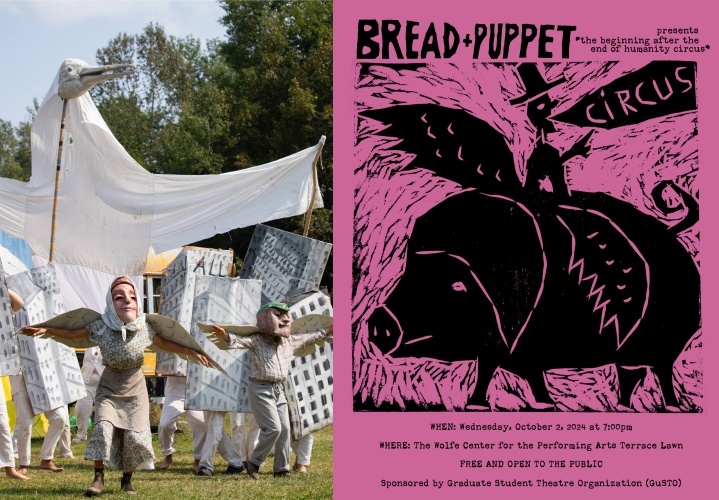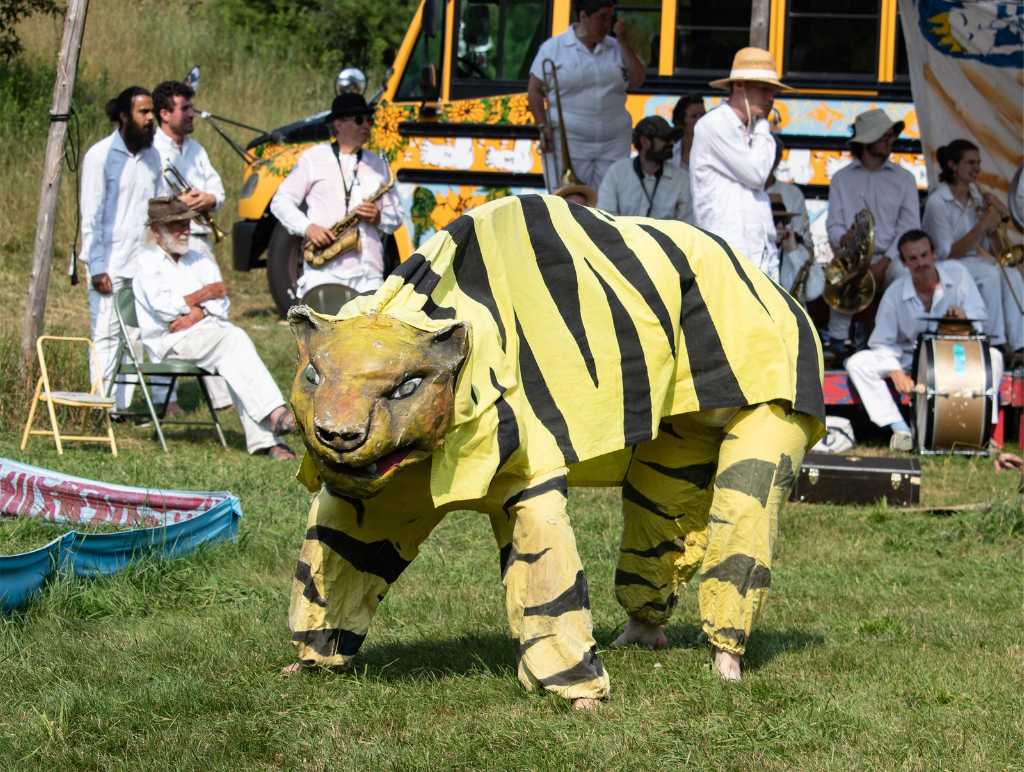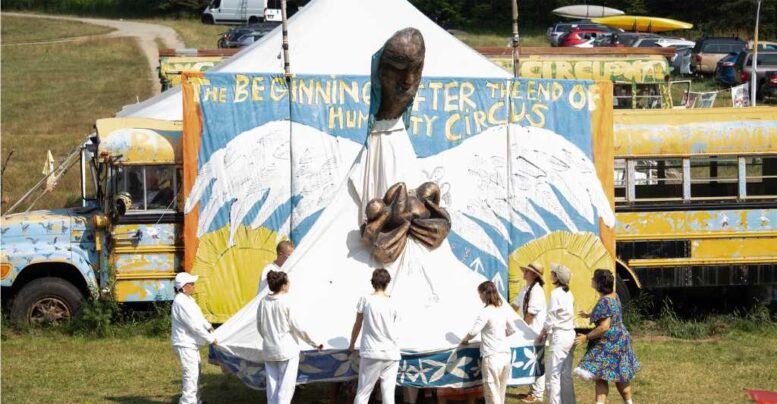From GRADUATE STUDENT THEATRE ORGANIZATION OF BGSU
The Graduate Student Theatre Organization (GuSTO) of Bowling Green State University is sponsoring a performance of the renowned “Bread + Puppets presents The Beginning After the End of Humanity Tour,” Oct. 2 at 7 p.m. at the Wolfe Center for the Performing Arts Terrace Lawn on the BGSU main campus.

This free event, open to the public, promises an unforgettable experience combining puppetry, theater, and social commentary.
The performance reflects on the state of humanity in a captivating artistic form.
The company presents “The Beginning After the End of Humanity Circus,” a brand new show in the tradition of the iconic Bread & Puppet Circuses that began while in residence at Goddard College in Plainfield, Vermont in 1970. As usual, the show will draw on traditional circus tropes and familiar Bread and Puppet iconography to draw attention to the urgent issues of the day. Stilt dancers, paper maché beasts of all sizes and a riotous brass band make a raucous, colorful spectacle of protest and celebration.
Director Peter Schumann describes the show as featuring, “tigers teaching the congress of cowards how to jump over billionaires and acquire the courage to not pay for the atrocities of the latest genocide; the proverbial sheep of the system refusing to be sheep and committing revolution against the system; and the blue horses of the peace and harmony terrorists of the Northeast Kingdom breaking through the wall of threatening clouds that hide the truth from the population and then galloping over the ruins of the truth industry.”
After the show Bread & Puppet will serve its famous sourdough rye bread with aioli, and Bread & Puppet’s “Cheap Art” – books, posters, postcards, pamphlets and banners from the Bread & Puppet Press – will be for sale.

Bread and Puppet Theater was founded in 1963 by Peter Schumann on New York City’s Lower East Side. Besides rod-puppet and hand puppet shows for children, the concerns of the first productions were rents, rats, police, and other problems of the neighborhood.
“More complex theater pieces followed, in which sculpture, music, dance and language were equal partners. The puppets grew bigger and bigger.
Annual presentations for Christmas, Easter, Thanksgiving and Memorial Day often included children and adults from the community as participants. Many performances were done in the street. During the Vietnam War, Bread and Puppet staged block-long processions and pageants involving hundreds of people.
In 1974 Bread and Puppet moved to a farm in Glover in the Northeast Kingdom of Vermont. The 140-year old hay barn was transformed into a museum for veteran puppets. Our Domestic Resurrection Circus, a two day outdoor festival of puppetry shows, was presented annually through 1998.
The company makes its income from touring new and old productions both on the American continent and abroad, and from sales of Bread and Puppet Press’ posters and publications. The traveling puppet shows range from tightly composed theater pieces presented by members of the company to extensive outdoor pageants which require the participation of many volunteers.
Today, Bread and Puppet continues to be one of the oldest, nonprofit, political theatre companies in the country.
John Bell, museum director, Ballard Institute and Museum,
University of Connecticutw wrties: “Here was a theatre that did not need to wait twenty years for a reasoned response to atrocity; here were images that—without the dialogue of actors theatre—seemedto correspond perfectly with the violence we read about or saw on television, but could not really articulate in our minds. I was enthralled and inspired. For the rest of my college years, my friends and I would look forward to seeing Bread and Puppet performances.”

